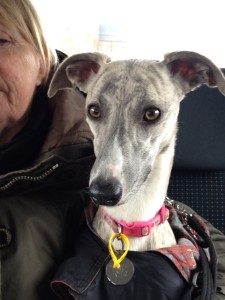Do Whippets Make Good Pets?
This Holidays 4 Dogs breed article will take a closer look at the Whippet. These dogs are beautiful and charming creatures, but do whippets make good pets? Read on to find out more…
The whippet has a long history as a working dog and hunting dog and has a close association with the working class. Despite their small size, they were tenacious hunters in working communities while, at the same time, being a cheap dog to keep. Whippets today are often described as the ultimate ‘all purpose dog’.
History.
In Medieval times, large and small sight hounds were common and it is thought that the whippet is derived from crosses of the smaller types of hound.
common and it is thought that the whippet is derived from crosses of the smaller types of hound.
However, even in 1788, the Encyclopaedia Britannica made no mention of the whippet. Greyhounds were listed, as well the ‘naked Turkish dog’ which resembled Italian greyhounds of today.
The whippet type, developed rapidly during the 19th Century when greyhounds were crossed with terriers – (possibly Bedlington terriers).
The resulting offspring were smaller and extremely agile, having the ability to quickly catch rabbits and small game for the pot.
Racing.
When these dogs weren’t working, their owners would race them in fields and village streets. The dogs chased a lure, (presumably a piece of cloth) since the races were known as ‘rag races’.
The races were extremely popular within mining communities. Dog racing was an important part of local culture up until the First World War. Whippets were clever and useful enough to fill the pot, small enough to keep in domestic houses and economical to feed.
Character.
Today, the Whippet remains a versatile dog and can make very pleasing family pets. They generally have a gentle and balanced temperament and are good house dogs, but do like to be active too. They are not usually considered to be a noisy breed of dog.
Whippets have a very strong desire to chase anything! This might mean a leaf blowing across the road, or other small animals – including cats. Once they have given chase, they can be difficult to stop – so this is something any would-be owner should consider before acquiring a whippet. Whippets can sometimes be a little sensitive to household chaos and won’t appreciate rough handling.
They are independent dogs and can be fairly aloof and are, therefore, not usually regarded as the most obedient dogs. That said, many whippets compete in agility, fly ball and even obedience – the Whippet Club U.K. do have an obedience section.
There are two types of whippets which prospective owners should be aware of. Some strains of whippet are from pure working, or coursing lines. Others are from show/pet lines and some, a blend of the two.
The differences between the appearance of the two whippet types is subtle. However, track and coursing dogs, tend to have even finer features and sometimes larger ears, carried further back on the head. Working/racing bred whippets can tend to be more energetic than show bred strains.
Health.
Currently there are no suggested genetic health screening tests recommended by the Kennel Club.
However a Kennel Club survey in 2004, found the most common cause of death in whippets was from heart disease.
Some breeders will carry out heart monitoring and testing. Some will carry out Doppler Testing (three dimensional pictures of the heart).
In addition, breeders are also beginning to take advantage of eye testing for whippets, despite being historically unaffected by diseases such as PRA.
The whippet coat is easy to keep and just needs a good rub down with a hound glove every few days. However, because the hair is quite ‘thin’ – and without an under-coat – they can feel the cold, so will benefit from wearing a warm dog jacket in the winter months.
These dogs are really captivating medium sized dogs, with gentle natures. They are very pretty dogs – with an almost sculptural beauty, admired very much by everyone they meet. As a result, whippets make very good pets for lots of families and individuals.




